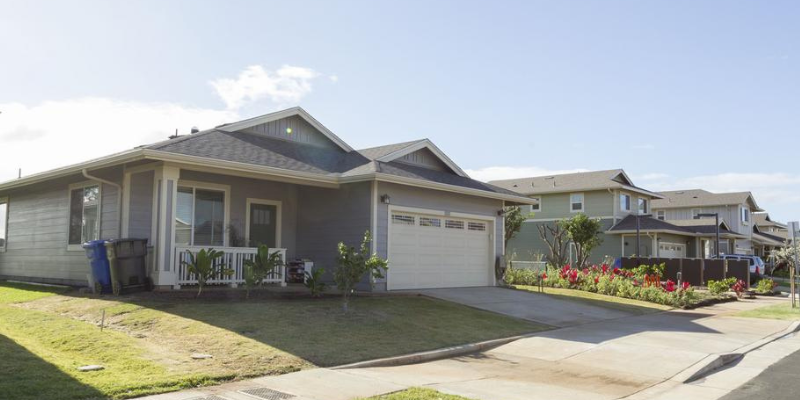
Considering selling your home in Hawaii is always tricky, with a set time for each individual. No doubt timing can either amplify or diminish the outcome of the plans. First-time buyers or even an intermediate seller must understand how long it takes to occupy a property before selling it. This is the most nuanced aspect of selling a property. This guide highlights the most prominent factors to consider before selling a property. The financial and tax obligations, local market conditions, demographics, etc., all have a significant say when making a selling decision. Hawaii is one of the most profitable places one can imagine, which is why protecting one’s investment is so important.
Understanding How Long to Live in Your Home Before You Sell in Hawaii
Deciding how long to live in your Hawaii home before selling involves more than simply picking a date on the calendar. Financial management, personal conditions, goal achievement, and tax strategies must be balanced to optimize profits and strategically pay mortgages.
Objectives are essential to maximizing profit, downsizing, or pivoting equity from an investment. Waiting too long or selling too soon has drawbacks. Market movements, demand, and rising maintenance costs are some reasons. Gaining profit or capital gains benefits, taxes on either basis hinge on how long the residence has been occupied. Relative and timing-based, this adds yet another layer.
Personal and professional lifestyle changes and requirements—whether a role change, balancing family responsibilities, or self-prioritization — will yield an effective date for relocation. Outside elements in the state’s real estate dynamics, such as the changing economic climate, will further influence the property’s sale velocity and profit behavior. Frequent and strategic analysis of domestic demand, surplus, financial patterns, and their interdependence will aid offshore investors in securing a target property.
Ultimately, the decision to sell blends financial strategy, tax planning, market insight, and personal timing. Thoughtful consideration ensures you protect and enhance your investment while setting yourself up for a successful and smooth transition to the next chapter of island life.
Key Factors Determining the Ideal Residency Period for Homeowners
Several factors, including your finances, mortgage, and personal goals, influence how long you should stay in your Hawaii home before selling. Home equity is essential, although selling prematurely, after paying more than half on a property, could earn you profits if you also consider the interest accruing on the mortgage. Staying in a property longer increases equity, which is helpful for upgrades, downgrades, or even other bigger financial decisions.
Mortgage terms also matter. Selling early—before the mortgage has been fully paid can easily trigger closing costs, prepayment penalties, equity penalties, or even the need to bring a check to the closing. For lenders, mortgage history is a critical factor to consider, as it can limit the mortgage borrowing power in the future.
Financial preparedness encompasses not only equity but also transaction fees, relocation costs, and even capital gains tax. The sale of an asset, appropriately timed with local market conditions, can yield significantly more profit; even a year or two of appreciation can phenomenally alter profit margins.
Changes in personal life, such as expanding families, new employment, or a lifestyle change, also determine the optimal timing for sale. Knowledge and understanding of equity, mortgage deployments, and market economics help make decisions while maximizing return value.
House Buyers Hawaii helps Hawaii homeowners navigate the right time to sell by considering equity, mortgage terms, market trends, and personal goals. This ensures you make informed decisions and maximize your proceeds.
Financial Considerations Before You Sell a Hawaii Home
Before selling Hawaii real estate, note the financials that directly impact profitability. Although most homeowners pay attention to the mortgage balance, home equity, and other accruing assets, the sale of the house hinges on the deeper details involving tax capital gains, tax breaks, tax deductions, and the costs of selling and preparing the home to be sold. If the sale occurs during a divorce, additional considerations come into play—such as how proceeds will be divided, whether selling is court-ordered, and the potential legal or tax implications tied to marital property settlements.
Agent commission and closing costs can significantly influence net proceeds, alongside staging, repairs, and other ignored expenses. This ‘tax planning strategy’, as of October 2023, revolves around home sale proceeds and Hawaii state taxes. An analysis of Hawaii Home Sale Proceeds and Hawaii state taxes seems helpful.
Capital Gains Tax and Other Costs Impacting a Home Sale
Selling a home in Hawaii has numerous capital gains tax implications. In most cases, the IRS exempts up to $250,000 for an individual or $500,000 for married persons if the home has been occupied for at least two of the five preceding years. Within the two-year occupancy period, if the house is sold sooner, one may be taxed on the total gains of the sale, which may either be a total or partial gain, depending on the island’s vicinity. The island is renowned for its breathtaking beaches.
Agent commission, escrow fees, and staging are usually the sources of selling expenses. Selling costs, and in turn equity, may be negative. If equity gains are negative, which is still a common circumstance in today’s Hawaii market, one may be in a Situation. Prepayment penalties on the loan tend to either constrain or be a payment incentive.
Ownership equity considers the house’s value in relation to its mortgage and advance repayment of the interest. Homeowners who have had the house for a while can cover imminent costs and use the equity to fund future asset purchases. Recently, equity buyers have been in a worse position.
Analyzing in detail the various factors involved in a real estate transaction, such as equity, taxes, mortgage, and optimal timing in the property cycle, would ensure deliberate and informed selling and aid a seamless transition in the case of a property in Hawaii.
Timing Your Sale: When Is the Best Time to Sell Your Hawaii Home?

Choosing when to sell your Hawaii home can mean the difference between a fast, highly profitable transaction and a drawn-out experience that yields fewer returns. A unique set of circumstances guides Hawaii’s real estate market, encompassing the patterns of local and foreign buyers, the ever-present tourism and emigration cycles, and unique local factors determining seasonal shifts in available inventory, supply, and demand.
Understanding instinct and utilizing it is one thing, but grasping the intricacies of the seller market and all the factors surrounding it, such as the real estate agents’ and global market cycles, to assess the necessary complexities to best gauge the profit made and speed of the transaction, is something much different. Listing a home for sale profitably requires deep assessment and strategy. This is precisely why we will explore the intricacies of the local market in greater detail to formulate the best sales strategy possible.
Contact us today for a no-obligation offer and expert guidance on timing your Hawaii home sale for maximum profit and a smooth, fast transaction.
Market Trends and Seasonal Insights for Optimal Results
Timing is critical in the real estate market regarding seasonal occupants, foreign purchasers, and local interests. Having insight and anticipating when the market is most favorable to sellers gives sellers the hack, which can be used to understand the terms ‘months to sell’ and supply-demand ratio. Agents can use indices and analytics to guide sellers year-round.
Market activity tends to increase and peak in winter-spring as buyers, especially families and interstate movers, rush in to acquire homes before the school year begins. There is a downturn in property listings in the fall; as such, March and April are desirable for attaining and closing several offers at much higher selling prices.
In addition to seasonality, other factors such as interest rates, stocks, policies, geographics, etc., influence timing. Competent agents can gauge any of these to assist sellers in profitably exploiting such conditions.
In conclusion, selling in Hawaii profitably requires an integration of personal factors, finances, and timing. With the appropriate knowledge of seasonal cycles, sellers can optimize their chances of selling the home in the right season and at the correct profit with the help of professionals.
What Influences the Speed of a Home Sale in Hawaii?
The closing velocity of home sales in Hawaii has less to do with luck than a potent combination of local demand, supply, and economy. Homeowners and agents must work with paranoia and balance to maximize their prices and efficiency.
On the demand side, local population, employment, interest rate, and seasonality define interest, while inventory creates a demand-supply balance that, in turn, either favors the buyer or seller. Competition and sales velocity increase with low inventory, while high inventory increases the sales appeal or lowers the price.
Economic indicators such as mortgage costs, tourism, and local factors determine the pace at which houses are sold. Sellers can change their plans to meet the new market conditions as changes in MLS are recorded and respond to subsequent trends.
Hawaii homeowners can utilize the aforementioned factors for faster sales and improved sales proceeds. Proficiency comes from education and discipline, and it determines success in this fierce market.
Local Demand, Inventory, and Economic Factors to Watch

There is a noticeable local demand for housing in Hawaii, with corresponding home buyer interest and MLS inventory. Seasoned agents and brokers selling freelance listings leverage the home sellers’ advantage to create fast competition, which helps in swift selling gains.
Excess and deficit inventory act as a market barometer. Deficient inventory raises prices and decreases time on the market, while excess inventory lends buyers greater choice and can restrict sales velocity. Because Hawaii is Landlocked, it is geographically and politically complex, which causes MLS shifts to be more pronounced, straggling the mainland. Thus, MLS monitoring focuses on the asset for positioning and advertising tactics.
Interest rates, government policies, tourism, and lending conditions influence demand and inventory. Low rates can boost buyer activity, including interest from Hawaii cash buyers, while uncertainty may slow sales. Hawaii’s economy, shaped by tourism, the military, and remote buyers, makes staying attuned to these trends critical. Local agents can advise sellers on timing and strategy to maximize results.
In Hawaii’s real estate market, success hinges on grasping the demand, supply, and market circumstances. Sellers who pay attention to these parameters and collaborate with proficient brokers stand the best chance of making quicker and more lucrative sales.
Tips to Sell Your Hawaii Home Fast and Efficiently
Selling your house in Hawaii is not simply a matter of price; it creates a good “first impression” that buyers will appreciate. With local demand and inventory restrictions, standing out will require a well-thought-out plan, plenty of preparation, and a well-thought-out strategy. Move-in-ready homes well aligned with buyer expectations sell in a much shorter timeframe.
Aside from the timing and market factors, strategic upgrades, staging, and cosmetic improvements contribute positively. Touches of paint, landscape, and lighting will accent your home’s best features, but stageable homes sell the fastest due to their emotional appeal to buyers.
Highlighting the one-of-a-kind lifestyle perks in Hawaii beach proximity, open-air spaces, stunning views, and other local features enables buyers to appreciate the life the islands offer. By planning, being detail-oriented, and staying buyer-oriented, you minimize the negative and maximize the positive impact of the home. You also achieve a fast, effective, and pleasant sale. The following paragraphs suggest basic approaches to prepare your Hawaii property for the market.
Preparing Your Hawaii Home for Listing and Attracting Home Buyers
Selling your Hawaii home requires more than just cleaning and tidying up; it requires fully demonstrating its latent value and targeting buyers the instant the home is uploaded on the MLS. View the home as a buyer would and take the necessary steps: remove excess items, remove any personal effects, and then clean all the floors in a way that allows the home to shine.
Your home’s ‘first impression’ is significant, so focus on curb appeal: do light landscaping, mow the lawn, and fix any steps leading up to your doorway. Small changes can also help, such as light leak repairs, replacing light fixtures, and replacing old, dim hardware, all of which work to bump up the value so the home is considered well-loved and well-looked after.
Effective staging is known to enhance the value of property appraisal. Properties that use architecturally styled staging instantly elevate the quality of the listing. Listings that use professionally designed staging tend to use high-quality photos, virtual tours, and immersive descriptions, significantly increasing showings.
Such representatives offer vast knowledge of the trends, such as neighborhood dynamics, pricing, when to list, and marketing to the right buyers. Focusing on the correct elements, such as proper advertising, effective and targeted marketing of your home, and using the specialists’ extensive knowledge, will create an effective and rapid sale that minimises time on the market and maximises value.
Homeowners’ Checklist: Are You Ready to Sell Your Home?

Evaluating your readiness as a seller is a crucial first step before listing your home in Hawaii. The state’s real estate market is vibrant and highly competitive, and thorough preparation can mean the difference between a smooth, profitable sale and a stressful, drawn-out process. Proper planning helps you anticipate challenges, address them proactively, and position your property to stand out, whether you’re working with traditional buyers or cash home buyers in Pearl City and surrounding cities in Hawaii.
A comprehensive checklist can assist you in selling your home, beginning with the financial aspects and accompanying tax ramifications—capital gains, exemptions, or at equity—reviewing mortgages and home equity. Set and stage physical parts of the home, such as the curb and any repairs or upgrades needed, to set the interior and prepare the house to sell.
A mix of practical resources and packs, such as expert pieces with clearly delineated steps and comprehensive disclosure, can help you bridge the gap in document collection, inspection moderation, or the arrangement of appraisals. With a submitted plan and cited checklist, homeowners will have increased ease of operation and lower tension, with a higher possibility placed on personal choice. Effective selling hinges upon the broader and increased hyper-focus placed on the scaffolding of the home, posturing suppliants, and suggesting maximal yields. Buyers and prospective purchasers notwithstanding, the initial viewing is opportune to extend swathes of profit.
Downloadable Guides and Resources for a Smooth Home Sale
Selling your home in Hawaii is more than a quick decision; it’s a structured process that benefits from organization and expert guidance. A seller’s checklist is essential, serving as a step-by-step roadmap from preparing your property to signing closing documents. Downloadable guides, curated for Hawaii’s unique real estate market, help homeowners stay on track, streamline tasks, and make informed decisions with confidence.
Agent-recommended resources outline key action items like decluttering, repairs, curb appeal, disclosures, and pricing strategies. Many include interactive checklists to track weekly tasks and prioritize pre-listing improvements, ensuring your home stands out in a competitive market. Local agents often provide Hawaii-specific guides that reflect buyer expectations, cultural considerations, and regional requirements such as boundaries, association fees, and permits.
These checklists also help sellers structure timelines for staging, inspections, and showings, ensuring no detail is overlooked. Whether selling a condo in Waikiki or a home on the Big Island, having expert-backed resources ensures smoother transactions, stronger offers, and less stress.
In Hawaii’s high-demand market, reliable checklists aren’t just convenient, they’re essential. Download yours today to stay organized, maximize equity, and achieve a successful home sale.
Choosing an Agent to Sell Your Hawaii Home Successfully
Choosing the right agent for your Hawaii home sale isn’t just about a license—it’s about trusting a true local expert with proven results. The best agents understand Hawaii’s unique market, use MLS data to set competitive pricing, and create marketing strategies that resonate with local and out-of-state buyers.
Start by interviewing multiple agents about their recent sales, neighborhood experience, and approach to pricing and staging. A skilled agent will provide a comparative market analysis (CMA) that factors in island-specific elements like proximity to beaches, schools, and tourism hubs.
Networking is critical in Hawaii, so look for agents active in real estate associations. They should have strong professional relationships and access to motivated buyers beyond the MLS. They should also be adept at digital marketing, open houses, and attracting mainland buyers.
Hawaii home sales also have cultural and emotional dimensions. Choose an agent who respects local traditions, communicates openly, and builds trust. Ask about their communication style—whether they provide updates, market insights, or weekly MLS reports.
Finally, review references, testimonials, and their track record of quick or full-price sales. The best agents act as trusted advisors, combining strategy, negotiation skills, and cultural sensitivity to deliver a smooth and profitable transaction.
Legal and Disclosure Requirements in a Hawaii Home Sale
Navigating the legal landscape of a home sale in Hawaii is more than a formality; it’s essential to ensuring a smooth, successful transaction. Sellers must follow Hawaii’s strict disclosure requirements and legal protocols to protect themselves from liability and give buyers complete transparency. These laws foster trust and fairness, but failing to comply can lead to delays, disputes, or even lawsuits.
A key responsibility is completing Hawaii’s property disclosure statement, outlining your home’s condition, known defects, past repairs, and issues affecting value or safety. Hawaii law strongly emphasizes honest, complete disclosure; even minor problems should be disclosed to avoid future legal action.
Working with a reputable real estate agent is equally important. A skilled agent will guide you through paperwork, deadlines, and documentation, while helping you understand how disclosures tie into inspections, appraisals, and financing.
The process includes preparing disclosure documents, reviewing them with your agent, presenting them to buyers, and updating them if new issues arise before closing. Sellers must also account for Hawaii-specific rules like HARPTA (Hawaii Real Property Tax Act) withholding, which can impact net proceeds.
By approaching the sale step by step with accurate disclosures, trusted professional guidance, and proactive compliance, you can avoid legal complications and set the stage for a smooth closing. This safeguards your interests and builds buyer confidence, increasing the chance of a quick, fair sale.
Essential Steps to Protect Yourself and Ensure Compliance
Selling your home in Hawaii is more than accepting an offer—it’s a legal process with strict disclosure requirements. State law mandates that sellers provide buyers with a comprehensive disclosure form covering the property’s condition, known defects, historical issues, and improvements. Missing or delaying these disclosures can lead to canceled sales, legal consequences, or costly delays.
Many sellers rely on experienced real estate agents to navigate these rules. Agents ensure disclosure paperwork is complete, covering items like termite reports, flood zones, easements, permits, or association documents. Their guidance helps prevent mistakes and protects sellers from future disputes.
Transparency is critical. Beyond obvious issues like roof leaks, sellers must disclose prior flooding, repairs, or restrictions that affect the property. Timely delivery is equally important—forms are generally due within ten days of escrow opening. Late submissions give buyers the right to delay or withdraw, putting the deal at risk.
Working closely with your agent ensures every legal step, from disclosures to closing documents, is met. By prioritizing compliance and clear communication, you protect yourself, build buyer trust, and set the stage for a smooth Hawaii home sale.
Looking to sell your home? Whether you want a fast sale, skip expensive repairs, or have a hassle-free experience, House Buyers Hawaii can help. We provide fair cash offers, care for all the details, and simplify the process. Have questions, or are you ready to sell? Call us at (808) 393-1303 for a no-obligation offer and get started today!
Helpful Hawaii Blog Articles
- How to Do Sale By Owner in Hawaii
- Capital Gains Tax After Selling a House in Hawaii
- Can You Sell a House With a Lien in Hawaii
- How to Sell House Inherited in Hawaii
- FHA Repair Requirements For Hawaii
- How Long to Live in a House Before Selling in Hawaii
- Can I Sell My House During Divorce in Hawaii
- Checklist For Selling A House in Hawaii
- Sale of A Rental Property in Hawaii

